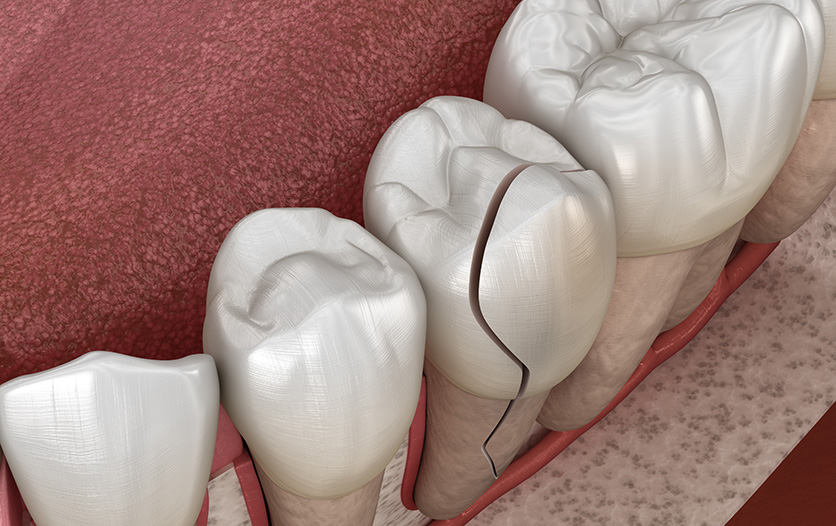
How Long Do Dental Implants Last?
Major advancements in dentistry within recent years have helped dentists achieve amazing results for their patients. Modern tools and techniques allow patients to attain beautiful, healthy smiles while reducing any discomfort and improving recovery times. Dental implants are one of the best of these advancements by far. They feel and behave just like natural teeth.
But the big question is: How long do they last?
What Is A Dental implant?
A dental implant is a durable and discreet solution for people looking to replace missing or damaged teeth. Modern implants are almost identical to natural teeth — looking and acting like the real thing.
It consists of a titanium screw that is placed directly into bone, replacing your missing tooth root. After it has been fitted, the bone surrounding your implant will gradually grow around it, eventually fusing to it. This holds the titanium screw firmly in place. A false tooth (a crown) is then fitted to the top of the implant. The false tooth (or teeth) is similar in shape, size, and color to your existing teeth. The crown(s) will blend in naturally with your smile and be indistinguishable from your natural teeth.
How Long Do Dental Implants Last?
These types of implants are designed to be a permanent solution to tooth loss, meaning, with proper care, they should last a lifetime. Their success rate is as high as 98%. Compare this to dentures which typically last 5-7 years and bridges which last 7-10 years. Once the bone cells fuse with the titanium screw, this implant essentially becomes part of the jawbone, acting as a highly stable tooth root, impervious to decay. While the screw (or implant) is typically permanent, it is possible for the lifespan to be reduced by certain factors. Implant failure is also possible if any factors interfere with the osseointegration, or bonding of the implant to the bone tissue.
What Factors May Reduce The Life of Dental Implants?
While this solution certainly holds up to the test of time, it does not mean that they are immune to failure or malfunction. They can fall short of expectations under certain conditions. Factors that may impact the life of dental implants include:
- Poor oral hygiene
- Smoking
- Teeth grinding
- Poorly executed procedure
- Existing medical conditions
Poor oral hygiene
Just like natural teeth, dental implants perform best when you maintain proper oral hygiene. This includes brushing at least twice a day, flossing daily, cutting down on sweets, and seeing your dentist an average of twice per year. When your mouth isn’t healthy, you become more susceptible to other conditions, including gum disease, caused by the accumulation of plaque. If plaque buildup occurs around the area of the implant, it can lead to implant failure.
Smoking
There are many well-known, harmful effects of smoking. Dental implant failure is just one more, albeit a lesser-known effect. Nicotine restricts blood flow to the gums, which slows the healing process and contributes to inflammation of the gum tissue around an implant. Tobacco users have an increased implant failure rate of approximately 20%.
Teeth grinding
Teeth grinding is a major factor impacting the longevity of dental implants. The amount of stress placed on the teeth and gums can affect the way that they heal or are positioned. Undue and consistent stress on them or the teeth and tissues surrounding the surgical site can cause a shift. In addition, teeth grinding can cause damage to the bone structure around the implants and cause gums to recede. Under these conditions, implants will not be as stable as they could be. Wearing a professionally fitted mouth guard easily addresses these risks.
Poorly executed procedure
You should only have implants inserted by a qualified and experienced dentist. Poor quality implants or implants that are not installed properly are more likely to fail.
What Are 5 Common Health Conditions That Can Impact The Success of Dental Implants?
Here are the five most common medical conditions that can contribute to failure:
Diabetes
Diabetes increases risk of gingivitis and periodontitis. It also reduces blood flow, making it harder for the surgical site to heal and harder for the implant to fuse with the bone properly. The risks of implant failure are greatest if you have uncontrolled diabetes.
Osteoporosis
An estimated 20% of women 50 or older have osteoporosis, and about 50% are estimated to have low bone mass, which often means a bone graft will be necessary to ensure that there is enough bone density to hold an implant in place.
Autoimmune and inflammatory diseases
These diseases cause your immune system to attack healthy cells in your body by mistake, causing inflammation (painful swelling) in the affected parts of the body. People with autoimmune disease such as rheumatoid arthritis heal at a slower rate, which can prevent an implant from thoroughly fusing with the jawbone.
Sleep Disorders
One sleep disorder that can cause dental implant failure is obstructive sleep apnea. Sleep apnea can cause nighttime teeth grinding, which can crack and chip healthy teeth as well as implants. Sleep disorders such as these cause a variety of complications, including cracked implants, screw loosening, and more. If you suspect you may have sleep apnea, you may want to get a sleep study before having your implant procedure. And if you grind your teeth at night, talk to your dentist about getting a nightguard to protect your natural teeth as well as any implants
Hormone imbalances
Hormonal issues are quite common in women; for example, menopause causes a decrease in available estrogen, which can cause a variety of oral health problems. For example, these hormonal imbalances can lead to dry mouth (which can contribute to gum disease) or to bone loss in the jaw, which can make it harder for implants to fuse into the jawbone.
Are You A Candidate for Dental Implants?
Above are the most common conditions that could cause complications. However, it is important to note that you may still be a good candidate for an implant even if you suffer from one of these conditions. You may just have to take extra care, perhaps by increasing hygiene to lessen chances of infection.
Dental implant surgery is a common procedure. It is considered safe enough to be an outpatient procedure, which means you don’t need to spend time in the hospital. Talk to your dentist about your risk levels.
Do you have more questions? Please don’t hesitate to get in touch with Evers Dental at (937) 884 4763.
About Evers Dental
We provide high-quality, state-of-the-art family dental services and procedures in a warm, welcoming environment. We understand going to the dentist can be stressful for many. We offer our patients compassion as well as years of experience. Get in touch with Evers Dental today for a consultation or to schedule your next procedure.




